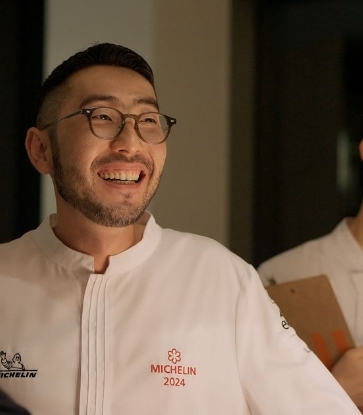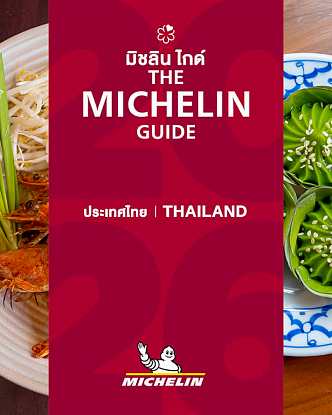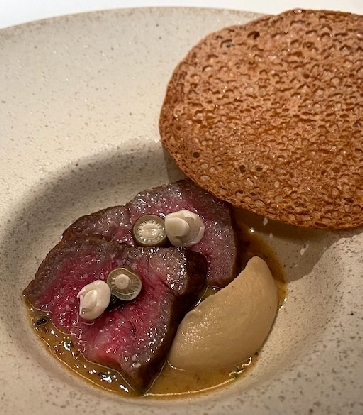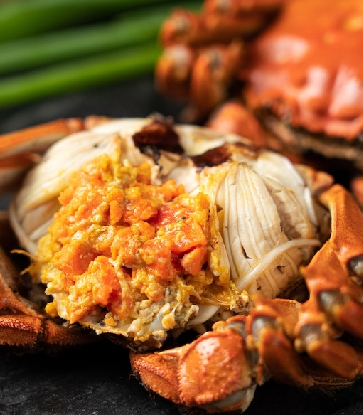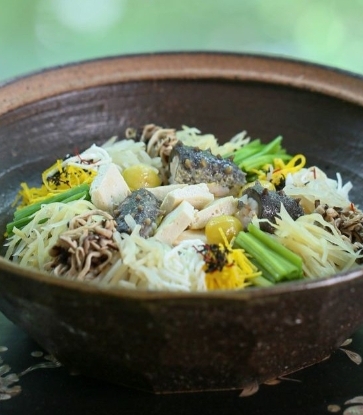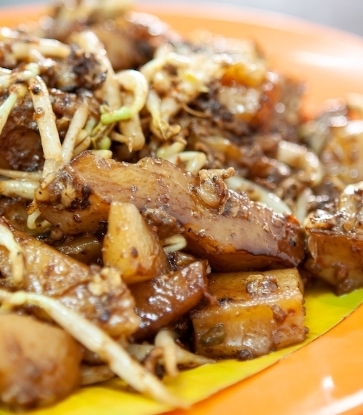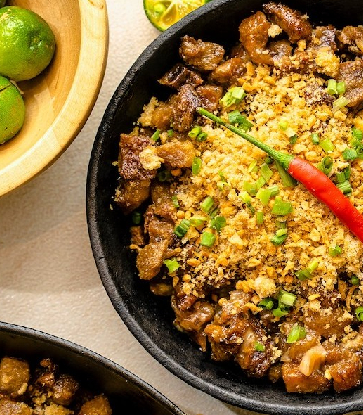In any territory, the pending release of the latest Michelin guide prompts a flurry of excitement across the culinary world. The media will be quick to make predictions–because everyone is free to speculate–regarding which dining establishments would be awarded one, two, or three stars. One thing is for certain. When it comes to the subject of Michelin stars, everyone wants to contribute to the discussion.
Such was the vibe leading up to the November 8th release of the 2018 Seoul guide. The guessing game was on, and the names of potential star candidates were tossed around. Some were mentioned more, others less. Exquisine definitely belonged in the “less-mentioned” category. Truth be told, not many people had heard of – much less dined in – the restaurant before it received its first Michelin star. One simple explanation for its low profile may have been its relatively new status in Seoul’s ever-growing dining scene. In fact, when Chef-Owner Jang Kyung-won received THE call from Michelin, the restaurant had just celebrated its one-year anniversary. Needless to say, people were intrigued.
What you will discover upon entering Exquisine is an understated space. The vibe is relaxed and informal, like the chef himself. According to Jang, the modest restaurant can accommodate up to 12 on a busy night. A heads up: don’t expect to find any wait staff here. There are none. No sommelier, either, to offer insights and recommendations. The restaurant is run by Jang and three other chefs. Together, they who cook, serve food and wine, engage the customers when they can, and make sure each and every one of them walk away feeling happy.
The sheer unpretentiousness of Exquisine is a reflection of Jang’s character and, in a way, his culinary background. He didn’t study at a prestigious culinary school. He never received the sort of regimented, rigorous training under a world-renowned chef you might expect from the resume of someone who owns a Michelin-starred restaurant. When he started cooking in a professional capacity, he was in his mid-20s, fresh out of the military, and away from home in Australia. All he had was a voracious appetite and an insatiable curiosity for everything related to food and cooking. After a brief stint in Australia, he spent several years learning the craft and honing his skills in North American kitchens – in New Jersey and Toronto – before returning to Seoul.
Jang says his passion for cooking was instilled early on by his mother, who has always been a keen cook herself. Some of his fondest childhood memories are of watching her in the kitchen, cooking up a storm for the family. At the age of ten, he told her he wanted to become a professional chef when he grew up. She didn’t think much of it. After all, he had always been the free-spirited younger son whose interests lay anywhere else but the classroom. But when he told her again – this time while in high school – that cooking was what he wanted to pursue in life, she knew he was serious.
Jang has never been associated with big industry names. He is not backed by investors, nor does he hire marketing people to promote his restaurant. He started with nothing save the conviction that this was what he was destined to do and that he absolutely loved doing it. Opening his own restaurant, however, was a whole different matter. He had never once considered himself to be the business-savvy type. In fact, being the chef-owner of his own restaurant was never the dream – cooking in a restaurant kitchen was. But a little nudge and encouragement from those around him, including Chef Kang Min-goo at Mingles, was what sealed his fate in his darkest hour. He opened Exquisine on November 1, 2016. The star came exactly one year later.
The restaurant offers a single tasting menu for lunch and dinner that changes frequently. To quote the Michelin inspectors, “Jang’s creativity is driven by his knowledge of local ingredients and understanding of the balance between each component that leads to flavors that are ultimately his own invention.”
After talking to him for a good two hours, I could sense just how much he loves being in the kitchen. I also came to the conclusion that if happiness really is contagious like they say it is, those who get to taste his food are some happy—and lucky—people.

What went through your mind when you were told that ‘Exquisine’ would be awarded a Michelin star?
When I received the call, I was, of course, thrilled, but I was pretty chill about it. At least I thought I was at the time. But when I saw the photos from the awards ceremony, I had the biggest smile out of anyone on the stage. I thought, ‘Yep. I that’s my happy face.’
How surprised were you when you first got the call from Michelin?
We soft opened in mid-October of 2016 and hard opened on November 1. I honestly had zero expectations. We were still new. We have limited seating. We don’t have a sommelier. We don’t even have servers. It’s just myself and three other chefs working hard every day to make do with what we have.
What did your friends and family say when they heard the news?
My parents were the first people I shared the news with. At the time, they didn’t really know what a Michelin star was nor what it meant for a chef to receive one. They must have looked it up on the Internet because, after a few days, they’re like, “So this is a huge deal, huh?” My brother is old school, so he of course says, “Congrats. I guess this means you’re going to make big money from now on.” My regular customers looked like they had received the star themselves. They couldn’t be happier for me.
What kind of food should customers expect to find at Exquisine?
I wanted to take a step back from specific ‘genres’ of food and simply create exquisite cuisine. What we are not is a Korean restaurant. There are certainly elements of Korean cuisine because we use ingredients like fermented fish sauce and soy sauce, but ‘fusion’ would be a much more accurate description of what we do. For instance, there is no way our pork wellington could be considered ‘Korean’ no matter how anyone looks at it. I am happy with ‘Innovative,’ the category designated to us by the Michelin inspectors.

Why did you decide against hiring wait staff?
The person who understands a dish better than anyone is the person who made it. He/she can probably explain everything about the dish better than anyone. It’s unfortunate when a server undermines the hard work that went into creating a plate of food because of his/her inexperience or lack of insight. I didn’t want that to happen in my restaurant.
Over the past year, I’ve noticed that customers really enjoy being served by chefs. They count on us to address their questions and requests right away and when we do, our credibility goes up that much more. As for us, we love seeing the customers’ reactions right away, in person. The system only works because our space is really small, but everyone is happier as a result.
Has the number of reservations gone up following the star?
We get around six or seven calls on an average day. On the day of the Michelin announcement, we received close to 100 calls. I was running some errands when suddenly my phone started to buzz and it didn’t stop. At first, I thought people were calling to congratulate me. Then I realized it was the restaurant landline ringing the whole time and the calls were being forwarded to my cell phone. For a brief while, I panicked. I remember thinking to myself, ‘What do I do? Is this how it’s supposed to happen?’ It was surreal. I’d never expected it to be that dramatic.
A little over two months have passed since that day. How do you feel now?
I’m half worried, half optimistic. After I got the star, someone told me that this was just the beginning. I think I’ve just started to understand what that person had meant.
Before the star, our customers–many of whom happen to have stumbled across our restaurant–were more supportive. Even when they saw room for improvement, they were generous and forgiving. That sort of vibe has since changed. A restaurant’s star status makes people skeptical. All of a sudden, everyone has something to say. Many customers arrive thinking, ‘Let’s see if you’re really star material.’ Chef Kwon Woo-joong at the 2-star Kwon Sook Soo had warned me this would happen. [Laughter]
It’s only natural that people’s expectations are going to get higher. You just said everyone seems to have something to say now. What kind of things, specifically?
Things we’d never heard prior to receiving the star. Things like, ‘For a Michelin-star restaurant, the interior is unremarkable.’ Or, ‘For a 1-star restaurant, you have a limited wine list.’ For them, a Michelin-star restaurant cannot be lacking in any way. I don’t disagree. But we were never a “fancy” establishment in the first place. Take the wine list, for instance. We don’t have a sommelier, so it was up to us chefs to compile the list one by one. We started out with just 16 labels. Now we offer 50 and plan on expanding it even more.

It must be hard work. But you look happy.
I love working in the kitchen more than anything in the world. As long as I pour my heart into cooking, it never lets me down. I’ve always been rewarded for my hard work. Knowing that motivates me to keep going. Now that my restaurant has a star, the only thing left for me to do is to exert myself even more.
What is your number one priority as a chef?
The customers are my number one priority. No matter how hard we work in the kitchen, if nobody is there to eat our food, then our efforts have been in vain. Customers complete what we chefs do. That’s why I always try to find the common ground between what they want to eat and what I want to cook. That, in turn, has to overlap with the choices I make every day with ingredient selection. We are dedicated to sourcing local ingredients produced through organic farming methods. We use indigenous species – rice, beans, bellflower roots, and ginger – supplied to us by a co-op led by women farmers. As a chef, there are so many things to consider and do, and it’s never easy.
I guess there is no other way but to compromise.
I agree. Let’s say I just explained to a customer that my Iberian pork dish tastes better when it is slightly pink at the center. All I am offering them is an option. If they want the pork well done, that’s what I will give them. I become hypersensitive when customers don’t finish their food. [Laughter] If a customer leaves a single piece of herb untouched on the plate, I will send one of my chefs over to find out why. There is a reason why that chrysanthemum leaf was served with that piece of meat, and it drives me crazy not knowing why the customer decided to avoid it. I obsess about it and I won’t give up until I know. It’s a problem I have.
We keep a detailed database of customers’ preferences and dietary restrictions, so we have a pretty clear idea of what our regulars like or don’t like. When we take reservations, we spend quite a bit of time taking notes. We encourage the customers to give us a full list of things they cannot eat or don’t like, even if it takes time.
What is the biggest lesson you have learned working in the kitchen over the years?
I started cooking professionally in my mid-20s. After completing my military duties, I spent a year in Australia. For the first six months, I worked at a steakhouse in a Sydney suburb called Penrith. I spent the remaining six months backpacking around Australia. During that time, I had a chance to live on a farm with a local family. It was a small but self-sufficient farm with four cows, a couple of goats and some chickens. The family cultivated the land and grew various crops.
One of my chores was to milk the cows at dawn. I’d still be half asleep and I’d ask myself, ‘What the heck am I doing?’ We would have fresh milk and freshly-laid eggs for breakfast. For lunch, we would cook and eat the chicken someone had killed early in the morning. During my lunch break, I would pick mulberries. They were fragrant and sweet, different from the ones I was used to eating back home. I didn’t realize at the time just how refined my palate was becoming, eating all these incredible things straight from nature.
That period ultimately helped shape who I am as a chef. I realized you never forget the taste of food, even if you’ve only tried it once. It becomes the standard by which you gauge taste. If a certain ingredient is up to par with my standard, I know there isn’t much I’ll need to tinker with. If it is under par, then I know some work needs to be done to enhance the flavors.
How would you describe Exquisine in one sentence?
Exquisine is super laid back!
In what sense?
Food on a plate reveals many things about the person who made it, including what his/her values are at given time. I am in my mid-30s. I am carefree. I don’t like conformity. ‘Exquisine’ is a reflection of who I am.
Something I’ve embraced from North American chefs while working in their kitchens is their carefree attitude – as long as it tastes good, anything goes. I understand that things tend to be much more rigid in Europe. But just because I prefer the more easygoing approach to cooking, it doesn’t mean I don’t respect convention. I have a huge amount of respect for chefs who have the knowledge and experience I have yet to accumulate.
You frequently change your menu. How do you come up with ideas?
I like to sit and zone out. Ideas often come to me when I’m in my zone. Other times, it takes a conscientious effort to come up with something new. It’s a step-by-step process that begins with listing all the ingredients that are in season. The funny thing is, when I take the more systematic approach, the outcome is always tasty but also boring. I’ve come up with dishes that are a lot more fun and interesting while daydreaming. But I haven’t had much time to do that this winter. My head is busy all the time.
How do you keep yourself from burning out?
We are an open kitchen so the chefs and the customers can see one another. Whenever I see the look of pure joy on my customers’ faces as they eat, or hear them tell us how much they enjoyed the experience, all of the stress and fatigue just melt away.
Do you have any resolutions for the New Year?
My resolution is to just continue doing what I am doing now. I don’t think my love for cooking will ever change. I want to continue making people smile with my food.
Published 2018.01.23




